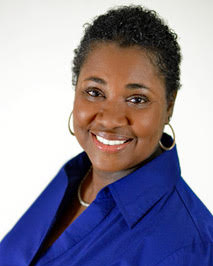
When students become aware of their own thinking processes and start to ask and answer questions about their learning, they are using metacognitive thinking skills. In a nutshell, metacognitive thinking happens when learners have conversations with themselves that will help them to plan, monitor, and reflect upon their learning.
For example, let’s say a teacher gives a student a list of ten single-digit numbers to add. Students might ask themselves, “What approach should I use to complete this task?” A student might think of a couple of strategies: “I can add the numbers as listed in sequence, or I can look for digits that equal the sum of 10 and add the rest of the numbers after I find multiples of ten.” If he knows he is better at adding multiples of ten than he is at adding numbers in a sequential list, he knows he has a greater chance of avoiding error. Therefore, he will use “finding multiples of ten” as a strategy.
This internal dialogue, or “thinking about thinking,” is a metacognitive skill that is quite meaningful throughout the writing process. As students move through the IEW units, opportunities to use metacognitive strategies abound.
For example, when planning an essay (Unit 8 of the IEW syllabus), students may apply what they’ve learned in Units 1, 4, and 6 and begin by reading and taking notes. Students may ask themselves “Which sources provide the best materials for my subject? Which key words or phrases should I select when I’m taking notes? Why did I choose these key words or phrases and not the other words? Will these key words help me to remember the main idea of the article?” The practice of asking and answering questions and making decisions is built into IEW’s methodology and modeled throughout all nine units.
As teachers, our job is to model the writing and thinking process. We can model thinking skills by using “chalk talk.” Chalk talk invites students into our own thinking process as we demonstrate each lesson. We ask and answer questions out loud as we model the task. We can invite students to understand our thinking process by asking them questions such as, “Why do you think I chose these facts? How does organizing my paragraphs this way support my thesis? What am I trying to communicate? Why do you think I chose one sentence structure over another?” This line of questioning will help students to reflect on their own thinking processes and to consider what approaches might help them to write and communicate most effectively.
Throughout the writing process, students should monitor their own compositions using questions such as “Are my sentences clear and concise? Are my paragraphs organized such that the information flows and makes sense? Which pieces of information are most interesting or important to the development of this essay? I am seeing certain facts repeated in several sources—maybe this is important and should be included in my essay.”
Once the essay is complete, students may reflect upon questions such as these: “Did I answer the prompt? Did I meet all the requirements as listed in the rubric or checklist? Did I demonstrate that I really understand the subject matter?” As students gain more experience, they will learn to ask deeper questions about their own learning: “What is the most important idea that I’ve learned about my learning and about my subject? What can I do if I don’t understand the subject well enough? Was the assignment too difficult or was it challenging enough?”
With this approach to writing, not only will learners accomplish the task of writing a well-structured essay, but they will also increase metacognitive thinking skills and learn how to ask and answer questions about their own learning and values. This is where real learning happens.
|
|
Sharon Ashford, MA.Ed, is an Accomplished IEW® Instructor with over 15 years of implementing Teaching Writing: Structure and Style in both public and private schools. She is a former English Department Chair, Curriculum Coordinator, and Teaching Coach. |

